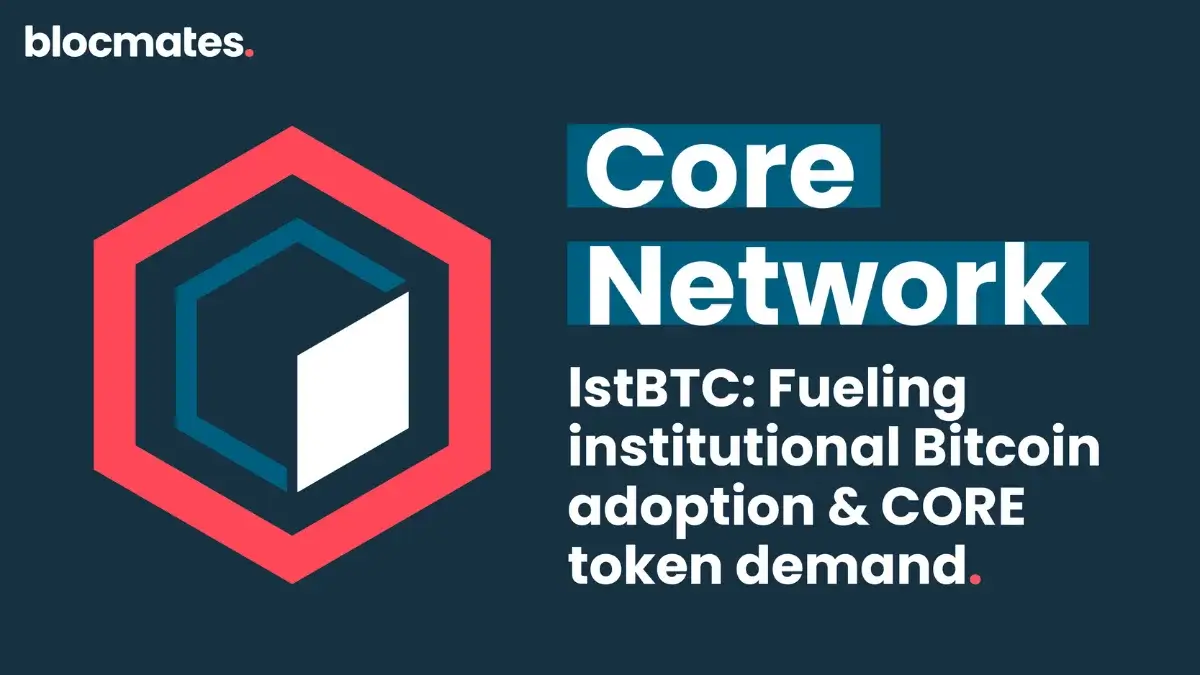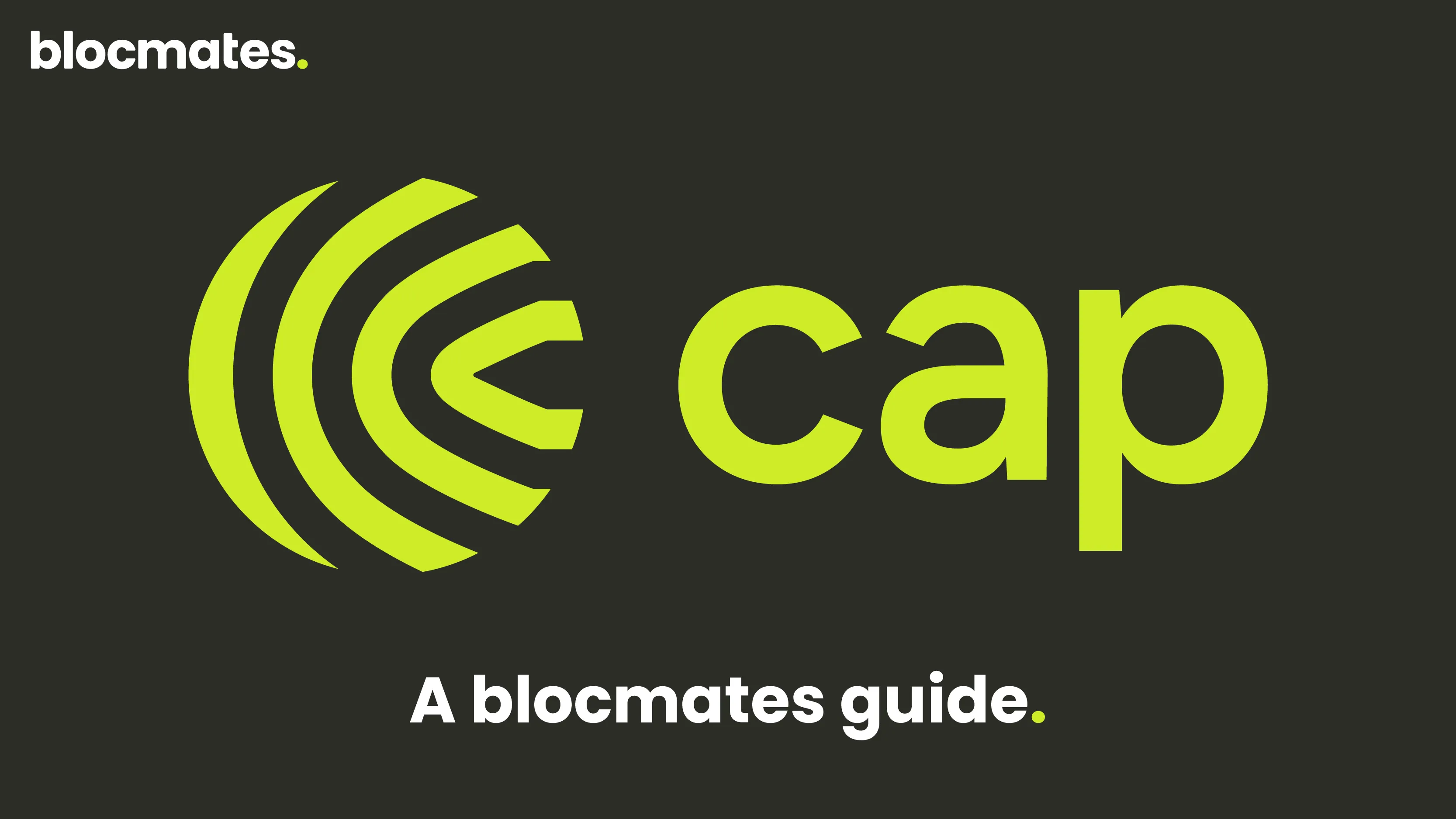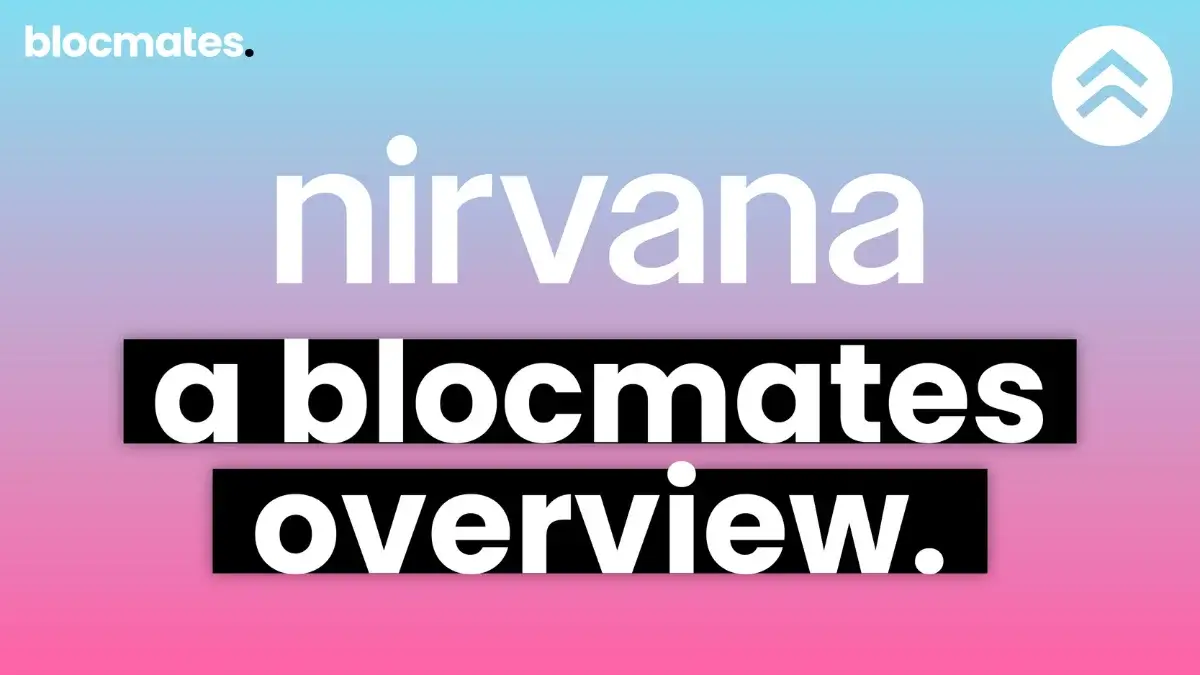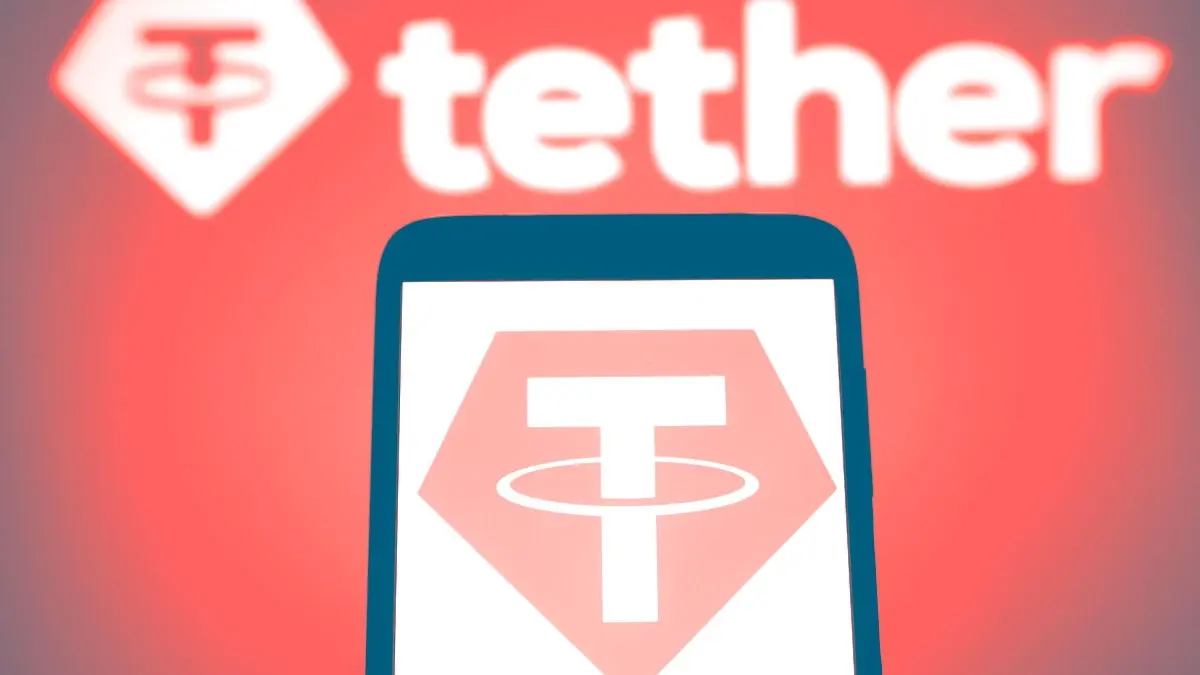You've probably heard the buzz about cryptocurrency; it's everywhere, from news headlines to social media feeds and maybe even at your family dinner table discussions. But if you're feeling a bit lost in this digital currency whirlwind, worry not! You've landed in the perfect spot, and once you go down this rabbit hole, there is no coming back.

Luckily for you, we're here to guide you through the fascinating, sometimes perplexing world of cryptocurrency. Think of this as your friendly neighborhood map, helping you navigate the basics of this digital treasure that could be the future of finance itself.
In this post, we will break down the essentials of cryptocurrency in a way that's easy to understand and free from overwhelming jargon. It's like learning a new language but way more fun and potentially profitable! We'll explore what cryptocurrencies are, how they work, and why they're causing such a stir in the financial world.
What Is Cryptocurrency?
Before we get into anything complex, let's understand the basics.
Think of cryptocurrency as a special kind of money, much like the tokens in a video game, but you can't touch or see it because it exists through computer programming languages. It's different from regular money, like dollars or euros, because it's entirely digital. You can use cryptocurrency to buy things or send to people, just like you would with regular money, but everything happens online.
One of the key features of cryptocurrency is that no banks are involved. Normally, banks help move and keep track of money, but with cryptocurrency, this role is taken over by the users themselves. It's like a huge group working together to ensure everything is fair and correct, rather than relying on a central bank that can decide who does what and when at an often unjustified cost.
Each unit of cryptocurrency is unique and protected by complex math problems, making it very secure. This high level of security makes it hard for anyone to cheat or steal on a fundamental level. Unlike traditional money controlled by governments or central authorities, cryptocurrency is decentralized. This means that an underlying, vast network is used to keep the system trustworthy and correct rather than being owned by a single person or company.
The backbone of cryptocurrency is something called Blockchain. It's a special kind of digital ledger or record book. Every transaction made with cryptocurrency is recorded in this ledger, which is transparent and open to everyone. While personal details like names aren't shown, the blockchain records all transactions and makes them viewable by anyone through various tools such as block explorers.
Simply put, cryptocurrency is a new digital form of money that is secure, not controlled by any central authority, and uses a unique system to keep track of transactions. It represents a modern approach to thinking about and using money in our increasingly digital world.

So What's Special About Cryptocurrency?
It's obvious that cryptocurrency isn't going anywhere, it's been a growing trend for several years now. Governments and financial institutions are starting to take it seriously, and major companies are investing in blockchain technology and cryptocurrencies alike. With the increasing popularity and adoption of cryptocurrency, it's clear that it will continue to play a significant role in the future of finance and technology. As more people become educated about cryptocurrency and its potential benefits, it's likely that its use and acceptance will only continue to grow. So, what's so special about crypto?
Cryptocurrency has already made its mark on the world. It's not just its rarity or potential value that catches attention. It's also about shaking up the traditional ways we handle money. Think of it as a global, digital phenomenon, you can send these digital coins across the world faster and cheaper than using a bank. This makes it incredibly appealing, especially for those who need to transfer money internationally or don't have easy access to regular banking.
What's more, using cryptocurrency offers a level of privacy and control that you don't usually get with standard bank accounts. When you transact with cryptocurrency, you don't have to give away as much personal information, which is a big plus for people who value their privacy in financial matters. Holding cryptocurrency is also done by the individual rather than an institution like a bank. This concept, often called “self-custody,” is one of the most powerful aspects of cryptocurrencies.
But it's not just about the money. The technology behind cryptocurrency, especially blockchain, is genuinely groundbreaking. It's not limited to financial transactions; it can be used for secure voting systems, creating digital contracts, and much more. This innovative aspect keeps people excited and invested in what's coming next. The use cases are endless!
Then there's the community aspect. Cryptocurrency isn't just about investors looking to make a quick buck. It's supported by a whole community of enthusiasts who really believe in the potential of this digital currency. They're not just watching from the sidelines, they're actively pushing for its use and development, driving innovation along the way.
Now let's look at its impact on traditional finance. Cryptocurrency is slowly but surely changing how we think about money and financial systems. It's challenging banking norms while advocating for a more open and accessible financial world. This ongoing impact keeps cryptocurrency in the spotlight and encourages more people and businesses to take it seriously.

What Is The Blockchain?
Blockchain technology is like a digital ledger or record book but with some unique features that make it very secure and trustworthy. Imagine a ledger not held in one place like a bank or a single computer. Instead, it's distributed across a vast network of computers. This network can be public, private, or a mix of both.
Each entry in this ledger is a piece of data or a transaction record. These entries are grouped into "blocks." Once a block is filled with data, it's chained onto the previous block, forming a chain of blocks, hence the name "blockchain." This chain creates a complete and unchangeable history of all transactions or data entries made.
One of the key features of blockchain is that it's very secure. Once data is added to the blockchain, it's nearly impossible to change or delete it. This is because each block contains not only the data but also a unique code (called a hash) mathematically related to the previous block. If someone tries to alter a block, the hash changes and the alteration is immediately evident. This makes the blockchain as tamper-proof as it gets.
Another important aspect is decentralization. Unlike traditional records kept by a central authority (like a bank), blockchain distributes its data across many participants. This means no single person or group controls the entire blockchain, making it more democratic and resistant to manipulation.
Blockchain also uses something called "consensus mechanisms'' to validate new entries, which are bound by specific rules to ensure that things remain fair. The prime example of this is the one that started it all. Bitcoin, or more specifically, the concept of Bitcoin mining. However, this isn’t a load of men and women digging in the ground to find uncovered treasures. Miners use powerful computers to solve complex mathematical problems that validate and secure new transactions. The first miner to solve the problem gets to add the new block to the blockchain and is rewarded with some cryptocurrency, in this case, Bitcoin. This process ensures that all participants agree on the data recorded, maintaining the integrity of the blockchain.
The store of value narrative that Bitcoin carries and the ability to send digital currency back and forth between peers is only scratching the surface of what exists in the world of crypto. Thanks to the rise of Ethereum, and with it an entirely new paradigm of functionality at an application level, the possibilities for revolutionizing finance as we know it have been created. Ethereum developed the concept of smart contracts. These are self-executing contracts with the terms of the agreement directly written into the code. They automatically enforce and execute the terms of a contract when conditions are met without the need for intermediaries.

Uses Of Cryptocurrency
The use cases for cryptocurrency are growing by the minute. It’s frankly damn hard to keep up with it all! Here are a few of the most common use cases we see today.
1. Digital Transactions
The most common use of cryptocurrency is for digital transactions. A little like sending money to your family or friends, but instead of going through a bank, you use a digital platform. This is what cryptocurrencies enable. They allow you to transfer funds directly to another person without needing an intermediary, like a bank. It's pretty similar to handing cash over to someone but in a digital format.
2. Investment
Many people view cryptocurrencies as an investment opportunity, similar to stocks or real estate. The value of cryptocurrencies like Bitcoin, Ethereum, and others can fluctuate, sometimes significantly. Some buy them hoping that their value will increase over time, allowing them to sell for a profit. However, it's important to remember that this can be risky, as the value can also go down.
3. Online Shopping
Just like you use your credit card for online shopping, some websites accept cryptocurrencies as payment. It's not as widely accepted as traditional currency yet, but the list of merchants embracing this form of payment is steadily growing.
4. Remittances
Sending money across borders can be expensive and time-consuming with traditional banking systems. Cryptocurrencies can simplify this process, making it faster and cheaper to send money internationally. It's like sending an email; no matter where the recipient is in the world, it reaches them swiftly and almost for free.
5. Privacy and Security
Cryptocurrencies offer a higher level of privacy compared to traditional banking. Transactions are secured through cryptography, and while they are recorded on a public ledger, personal information is not. This appeals to those who prefer to keep their financial activities private.
6. Access to Financial Services
In some parts of the world, access to traditional banking is limited. Cryptocurrencies can offer an alternative, providing financial services to people who don't have access to traditional banks. It's like having a bank in your pocket, as long as you have an internet connection.
7. Smart Contracts
Some cryptocurrencies support 'smart contracts'. These are self-executing contracts where the terms of the agreement are directly written into code. They automate processes and transactions, ensuring they happen exactly as planned without the need for intermediaries. It's like having a robot execute a contract the moment certain conditions are met.
Is Cryptocurrency Safe?
When diving into the world of crypto, a question that often arises is, Is it safe? This concern is particularly valid when considering prominent digital currencies like Bitcoin. To address this, we need to explore the risks associated with investing in cryptocurrency, balancing them with an informed perspective.
Volatility: A Double-Edged Sword
First and foremost, crypto is known for its volatility, after all it is the best-performing asset class of all time for a reason! Its value can fluctuate dramatically and swiftly. While this might appear alarming, such volatility is not unusual for cryptocurrencies. In fact, this characteristic is what makes crypto both interesting and potentially lucrative, especially when compared to traditional investments like stocks. Historically, despite its fluctuations, the market value of cryptocurrency has trended upwards. This suggests that for patient investors not seeking immediate gains, cryptocurrencies could be a valuable addition to a diversified portfolio.

Regulatory Uncertainties
The regulatory landscape for cryptocurrencies is still evolving. Governments worldwide are grappling with how to manage and tax digital currencies. This uncertainty might be concerning, but it also indicates that cryptocurrencies are being recognized in global finance. Over time, this attention could lead to increased stability and wider acceptance.
Security: Your Responsibility
Security in the crypto world is paramount, and with it comes the need for self-responsibility. Cryptocurrency transactions are incredibly secure and irreversible, differing from traditional banking transactions. However, the lack of a central authority to assist in issues like lost passwords or hacking incidents means investors must be vigilant in safeguarding their digital assets. The upside? Complete control over your investments, free from the constraints and risks associated with conventional banks.
Environmental Impact
Bitcoin mining's environmental footprint, particularly its high energy consumption, is often a topic of debate. While it's true that Bitcoin mining is energy-intensive, it's worth noting that the traditional banking sector also has a significant energy footprint. The focus on Bitcoin’s energy usage has spurred efforts towards using renewable energy and improving mining efficiency, reflecting a commitment to environmental responsibility and innovation.

An Evolving Future
The future of cryptocurrency is not set in stone, and its role in the global financial system is continually developing. This uncertainty carries risks but also opens up substantial opportunities. Crypto’s resilience and adaptability, coupled with increasing institutional investment, signal its growing legitimacy in the financial world. The emergence of Bitcoin ETFs in the United States, for example, is a testament to its potential for further integration into mainstream finance.
What Are The Different Types Of Cryptocurrency?
There are several different types of cryptocurrency, each with its own unique features and functions. Bitcoin, the first and most well-known cryptocurrency, is a decentralized digital currency that operates on a peer-to-peer network. It is used for online transactions and can be stored in digital wallets. Ethereum, on the other hand, is a blockchain platform that enables developers to build and deploy smart contracts and decentralized applications.
Bitcoin
Bitcoin is looked at as a store of value, a kind of digital gold. Just like gold, it has value because people agree that it does, and just as gold does, it has a limited supply. However, unlike gold, you can't hold Bitcoin in your hand; it exists only on computers.
Bitcoin was created in 2008 by an unknown person or group using the name Satoshi Nakamoto. It's a bit like a coin, but it's completely digital. You can't put a Bitcoin in your wallet or purse, instead, it's stored in a digital wallet on a computer or smartphone.
One of the unique things about Bitcoin is that it's decentralized. This means there isn't a single bank or government controlling it. Instead, it's maintained by a network of people's computers around the world. These computers keep a shared record of all Bitcoin transactions in a public list we call the blockchain. This makes it very hard to cheat or destroy it.
People can buy Bitcoin with regular fiat money and then use it to buy things online, invest, or just keep them in hopes that their value goes up, the same way people do with gold or stocks.
Every Bitcoin transaction is recorded and publicly available, but the people involved in the transactions are kept anonymous. It's like seeing all the transactions in a bank ledger without knowing who the people actually are, unless they have made their wallet addresses public.
Ethereum
Ethereum can be thought of as a global computer that everyone can use and build applications on top of. Picture a huge Lego set where everyone can build their own little creations (like apps or programs), and these creations can talk to each other and work together. It's all online, and no single person or company controls it.
The special thing about Ethereum is that it has its own kind of money, called Ether (ETH). People use this digital money to pay for using the Ethereum network, these network fees are known as “gas”. It's like buying tokens at an arcade to play games, but in this case, the tokens let you use special features of the online computer that is the Ethereum network.
One of the things people build on Ethereum are smart contract based applications. These smart contracts are like regular contracts, but they run automatically. For example, if you and I made a bet about the weather, the smart contract would automatically give the money to whoever guessed right, without needing someone else to decide.
So, in simple terms, Ethereum is a big online space where people can make, use, and pay for digital applications and agreements, using its own special digital money.
BnB - Binance Coin
Imagine Binance Coin (BNB) as a special kind of money used in a large digital marketplace called Binance. Binance is essentially a big online store, but instead of buying clothes or electronics, people buy and sell different types of digital money, known as cryptocurrencies.
BNB is like the store's own brand of money. Just like some amusement parks have their own tokens for buying food or playing games, Binance created BNB for people to use within their marketplace. You can use BNB to pay for services in the Binance marketplace, such as getting discounts on trading fees, and it can also be traded for other digital currencies.
Think of it like this: If the internet had its own shopping mall, BNB would be the special currency you could use inside that mall, offering you certain benefits and discounts. It's very similar to having store vouchers, but in the form of digital money that can change in value, just like stocks in the stock market.
DogeCoin
DogeCoin, a digital currency or cryptocurrency, stands out in the world of online finance with its unique beginnings and character. Unlike traditional currencies like dollars or euros, DogeCoin exists only in the digital space. It was created in 2013, not with the intention of starting a serious financial movement, but as a playful nod to an internet meme featuring a Shiba Inu dog. This humorous origin sets DogeCoin apart from other cryptocurrencies, which are often born from more technical or economic motivations.
Like other cryptocurrencies, DogeCoin is decentralized, meaning it isn't controlled by any single government or central bank. Instead, it operates on the same blockchain technology as all other cryptocurrencies do. This blockchain is a secure, digital ledger that records all transactions made with DogeCoin, ensuring transparency and security. However, what makes DogeCoin different from other cryptocurrencies like Bitcoin or Ethereum is its community-driven nature and less serious demeanor. The DogeCoin community is known for its friendly and welcoming attitude, often using the currency for charitable donations and community-driven initiatives.
In terms of technical aspects, DogeCoin also differs from other major cryptocurrencies. For instance, it has a faster transaction time compared to Bitcoin. Additionally, unlike Bitcoin, which has a cap on the number of coins that can be mined, DogeCoin has no maximum limit, meaning it can be mined indefinitely. This makes DogeCoin more accessible and inflationary, which is different from the deflationary nature of Bitcoin.

How Should I Store My Crypto?
Storing your cryptocurrency is similar to safeguarding your valuable items, and understanding how to do it effectively is crucial.
Crypto wallets are your digital safes. They don't actually hold your digital money but store two types of keys. A public key, which is like your bank account number, and a private key, similar to your bank PIN. These keys are essential for any activity in the crypto landscape, and understanding them will go a long way.
There are different types of wallets. Hardware wallets are physical devices, much like a USB stick, that store your keys offline. They offer high security since they're not connected to the internet, making them less vulnerable to hackers. However, they can be a bit inconvenient for frequent crypto use and are often referred to as “cold wallets.” Software wallets, or “hot wallets,” on the other hand, are apps or programs on your computer or phone. They offer more convenience for regular use but are less secure due to their online presence. Then there are paper wallets, which are literally pieces of paper with your keys written on them. They are very secure as they're not online, but the risk of loss or damage is higher.
When it comes to custodial versus non-custodial wallets, the difference is about who holds the keys. Custodial wallets are like safety deposit boxes at a bank. A company, such as a crypto exchange, holds your keys. This is convenient and user-friendly, especially for beginners, but it means placing trust in someone else with your keys. Non-custodial wallets are like having a personal safe at home. You have complete control over your keys, offering more security but with the responsibility of not losing them.
Another important aspect is the distinction between hot and cold storage. Hot wallets are connected to the internet, providing quick access and ease for trading, but they carry a higher risk of online attacks. Cold wallets are not connected to the internet, making them safer from hackers, but they are less convenient for frequent trading.
Safety is paramount in storing cryptocurrency. You should never share your private keys, just like not giving out your bank PIN. It's also crucial to have a backup of your keys in case of loss. Being cautious online, avoiding scams, and not clicking on suspicious links are essential practices.
Finally, choosing the right wallet depends on your needs. For regular trading, hot wallets or custodial wallets offer more convenience. For long-term storage, cold wallets or non-custodial wallets provide enhanced security. The best is a combination of both: a hot wallet for your online trading activities and a cold wallet to store your longer-term holdings in.

The Future Of Crypto
Cryptocurrency stands at the forefront of a digital revolution, offering transformative potential in finance and beyond. Its future, marked by innovation and increasing adoption, promises to reshape the way we interact with money, making it a bright and exciting horizon. Much like the early days of the internet, many are skeptical of crypto’s longevity, but in the same way early internet faders were left in the dust, crypto will likely cause many regrets to those who looked the other way in future years to come.

There will come a time in the not-so-distant future where many of the things we take for granted today will run on crypto rails. It is very likely that the users of such applications and services will not even know that there is a blockchain underneath doing all the work for them.
As time moves forward and more big-brained individuals cross the void from the web2 world into crypto, they will bring with them greater technological advancements and ever-increasing use cases.
Having armed yourself with the basic knowledge of how the space works, you will now be able to go forth with confidence and discover all the beauty that crypto has to offer.
You have entered the rabbit hole, my friend, and there is no going back now.





.webp)
.webp)
.webp)

.webp)




%20(1).webp)



























































%202.webp)


.webp)

.webp)
.webp)
.webp)



.webp)












%20the%20Next%20Big%20Unlock%20in%20AI.webp)














.webp)
.webp)


.webp)
.webp)










.webp)


.webp)









.webp)











.webp)








.webp)
.webp)
.webp)

















.webp)

.webp)
.webp)

.webp)
















.webp)

.webp)


.webp)








.webp)





.webp)












.webp)





